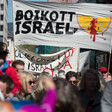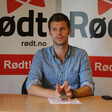The Electronic Intifada Jordan Valley 12 February 2014
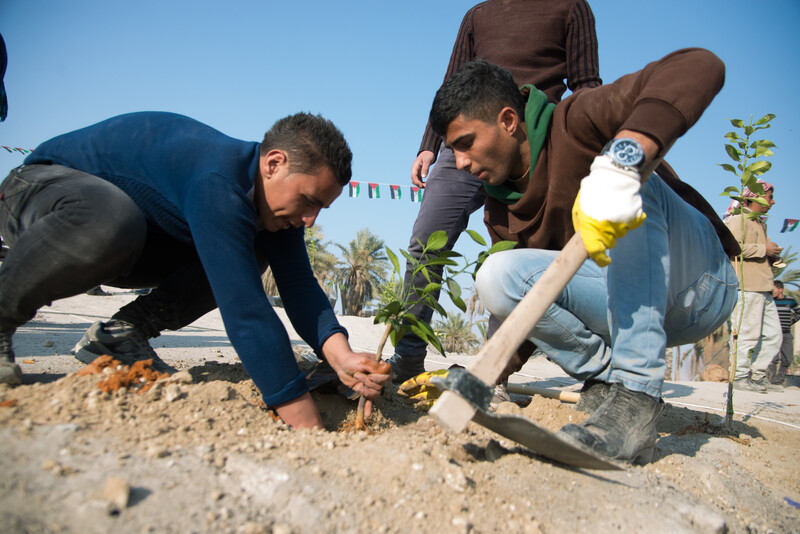
Palestinian youths plant trees in the Jordan Valley protest village of Ein Hijleh, 6 February 2014. As part of its Milh Al-Ard (Salt of the Earth) campaign, the Palestinian Popular Struggle Coordination Committee began on Friday, 31 January to restore and inhabit abandoned homes in Ein Hijleh to protest the ongoing Israeli annexation of the Jordan Valley.
On 31 January, some 300 Palestinian activists established the protest village of Ein Hijleh in a cluster of palm trees and houses in the Jordan Valley, north of the Dead Sea, that were forcibly depopulated when Israel occupied the West Bank in 1967.
Ein Hijleh was created in the face of pledges by Israeli Prime Minister Benjamin Netanyahu that he would not “uproot any Israeli citizen” from the occupied West Bank, and his insistence on retaining control of the Jordan Valley amid talks brokered by US Secretary of State John Kerry.
The village was organized by the Palestinian Popular Struggle Coordination Committee, with aim of “refusing the political status quo, especially given futile negotiations destroying the rights of our people for liberation and claim to their land.”
During the seven days of the encampment, activists began to make the crumbling houses inhabitable, planted trees, installed solar panels, hosted political, religious and diplomatic leaders, screened films and held cultural and political discussions.
But in the early morning hours of Friday, 7 February, one week after the village was re-established, hundreds of Israeli occupation soldiers descended on the remaining activists.
Dozens were arrested and as many as 41 were injured according to reports that emerged from the early morning chaos.
Hamde Abu Rahma, Keren Manor, Ryan Rodrick Beiler and Oren Ziv are members of the ActiveStills collective.
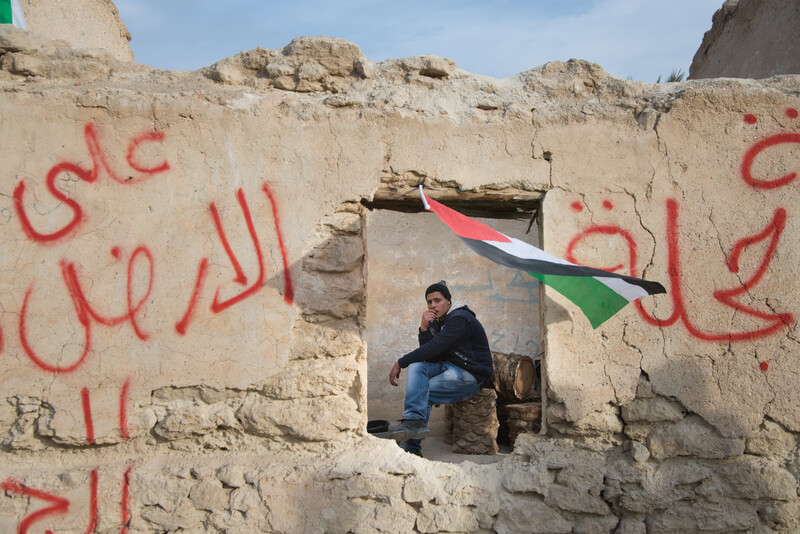
Palestinian activists occupy abandoned houses in Ein Hijleh protest village, in the Jordan Valley, 31 January 2014. Over 300 Palestinians participated in the action, as part of Milh Al-Ard (Salt of the Earth) campaign against the Israeli plan to annex the Jordan valley, discussed during the current round of talks between the Palestinian Authority and Israel, coordinated by US Secretary of State John Kerry.
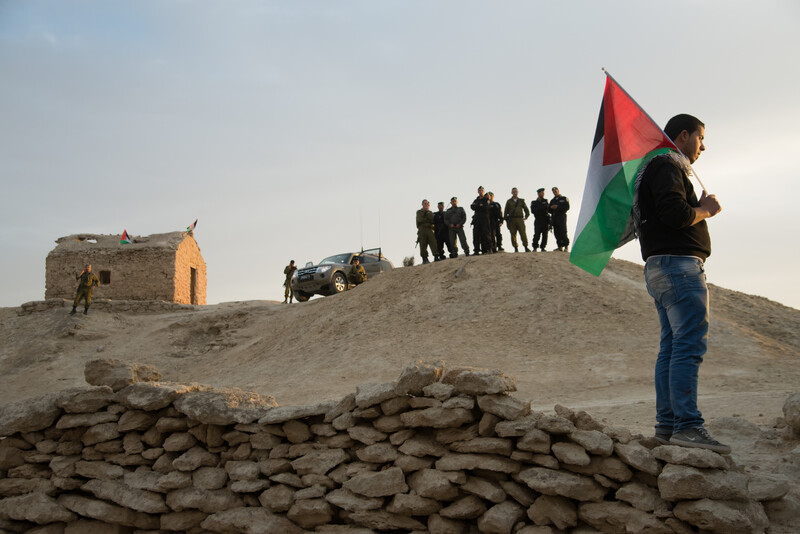
Israeli occupation forces monitor Palestinian activists in Ein Hijleh protest village, 31 January 2014.
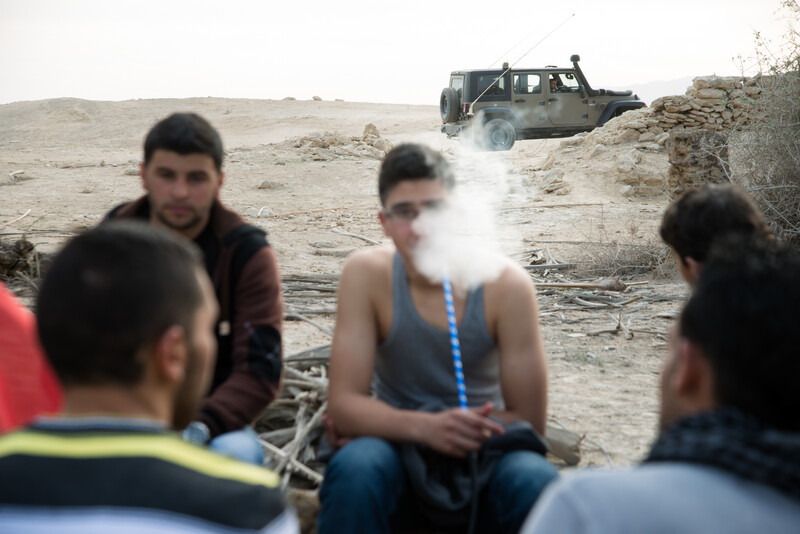
Palestinian activists in Ein Hijleh protest village relax as an Israeli army jeep patrols nearby, 31 January 2014.
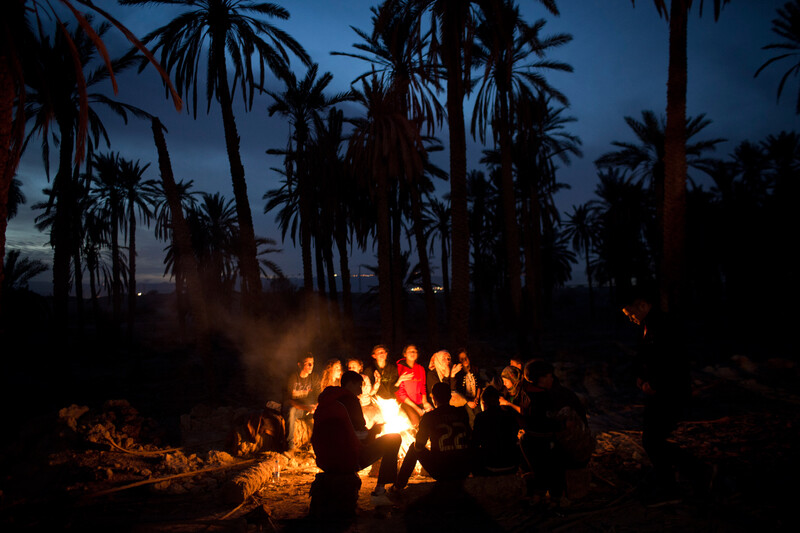
Palestinians sit around a fire in the Ein Hijleh protest village, in the Jordan Valley, 31 January 2014.
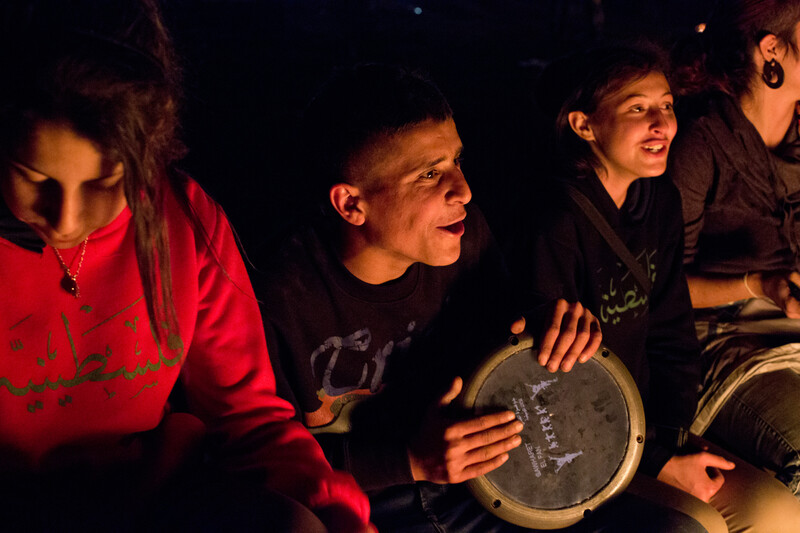
Palestinians play music around a fire in Ein Hijleh protest village, in the Jordan Valley, 31 January 2014.
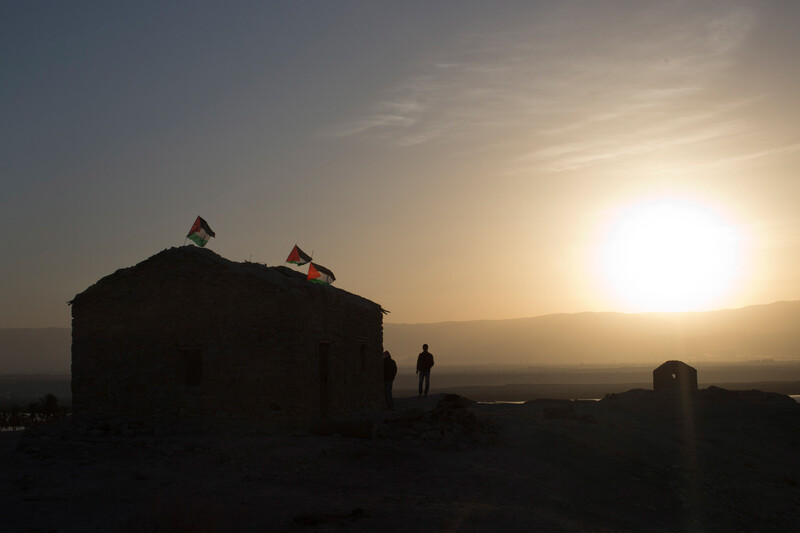
Palestinian activists are seen in Ein Hijleh protest village, in the Jordan Valley, occupied West Bank, 1 February 2014.
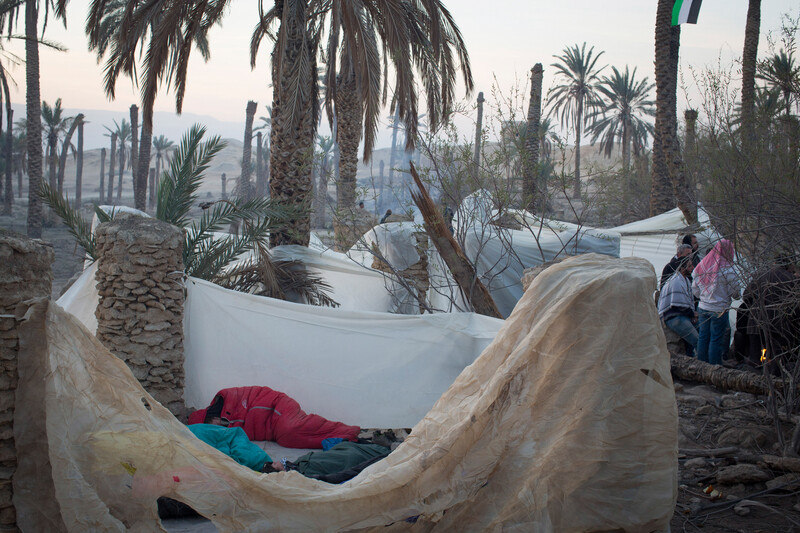
Palestinian activists sleep among the palm trees in Ein Hijleh protest village, 1 February 2014.

Palestinian activists argue with Israeli occupation soldiers in the Ein Hijleh protest village in the Jordan Valley, 31 January 2014.
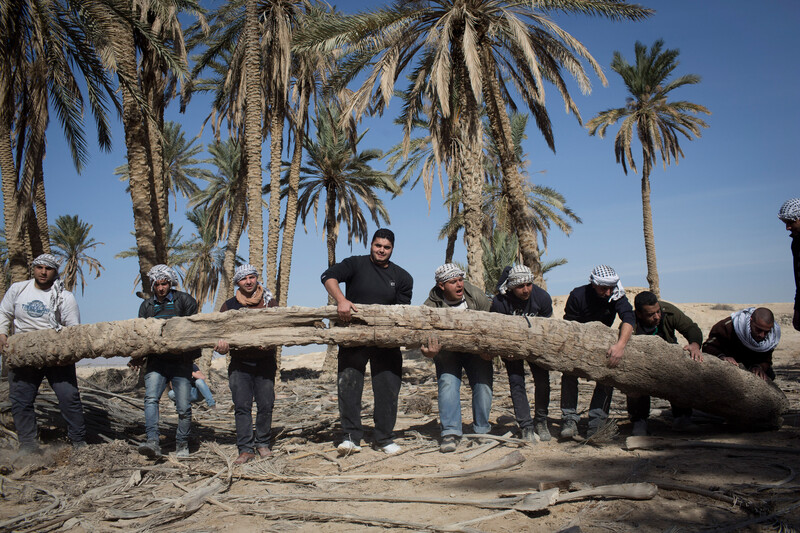
Palestinian activists work to clean an area in the Ein Hijleh protest village, 31 January 2014.
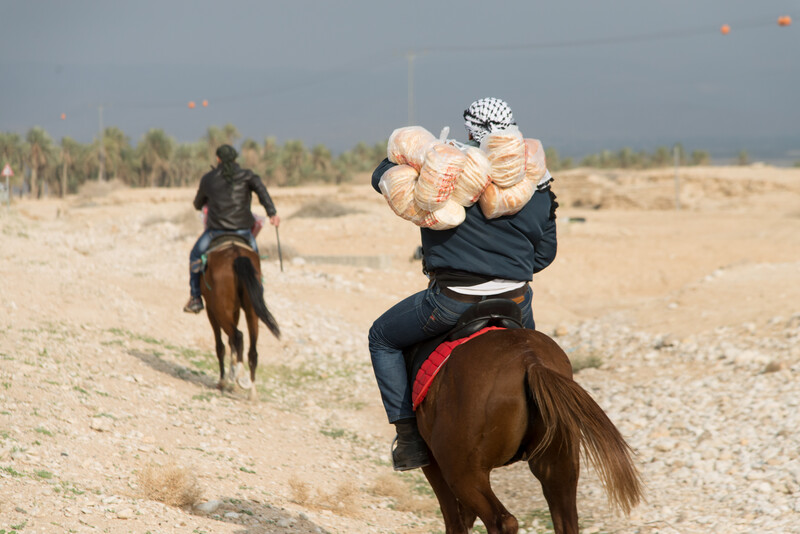
Due to Israeli army roadblocks that would not allow cars to enter, Palestinians on horseback help deliver supplies to the protest village Ein Hijleh in the Jordan Valley on 3 February 2014.
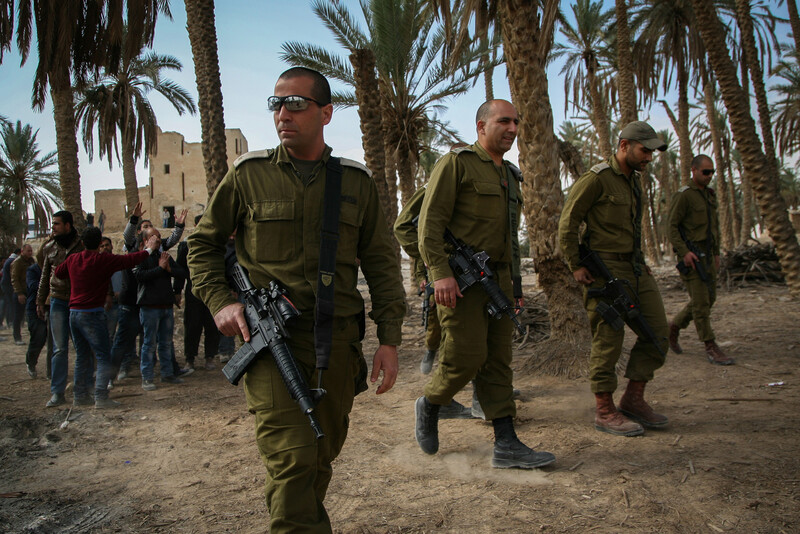
Israeli occupation soldiers patrol Ein Hijleh, 5 February 2014.
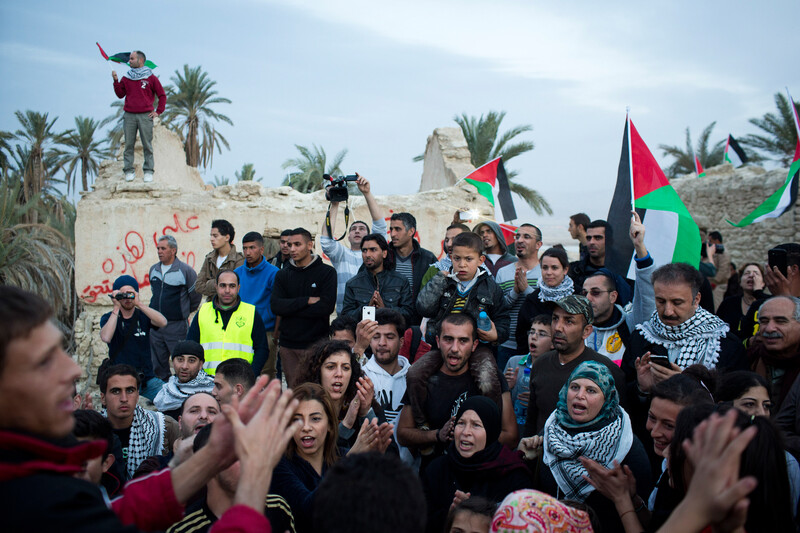
Palestinians chant slogans in Ein Hijleh protest village, 31 January 2014.
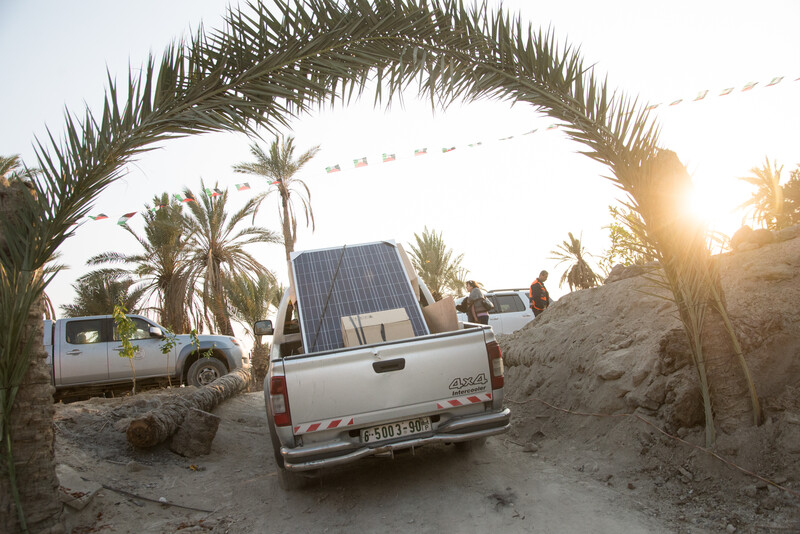
Palestinians deliver solar panels to the Jordan Valley protest village of Ein Hijleh on 6 February 2014. The panels were donated by the Applied Research Institute, Jerusalem (ARIJ), a Palestinian nongovernmental organization.
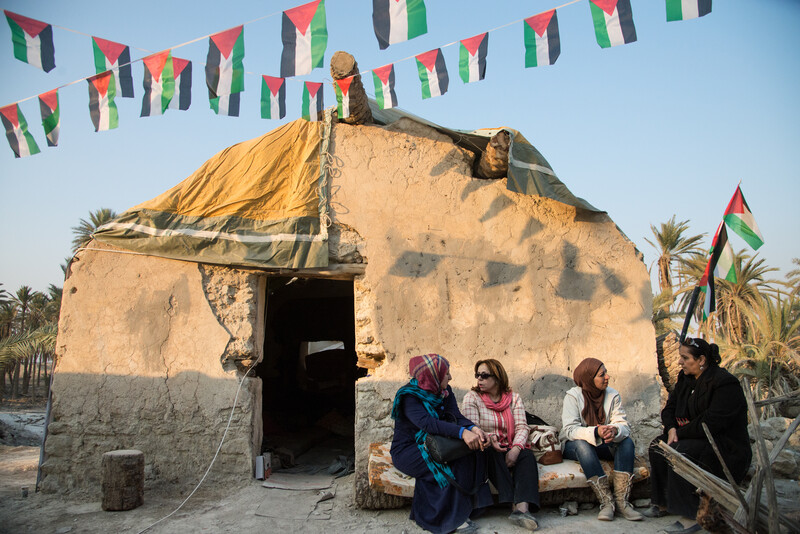
Palestinian women visit one of the re-inhabited houses in the Jordan Valley protest village of Ein Hijleh on 6 February 2014.
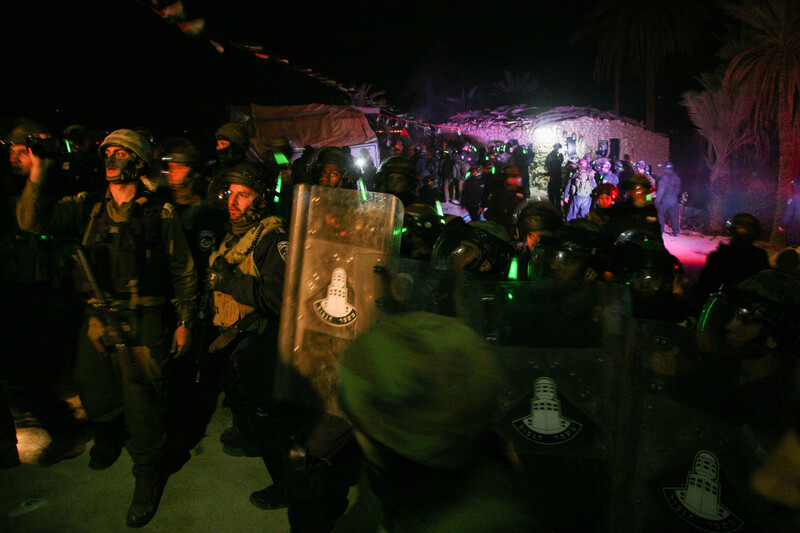
Israeli army and police raid and evict the Ein Hijleh protest camp, 7 February 2014.
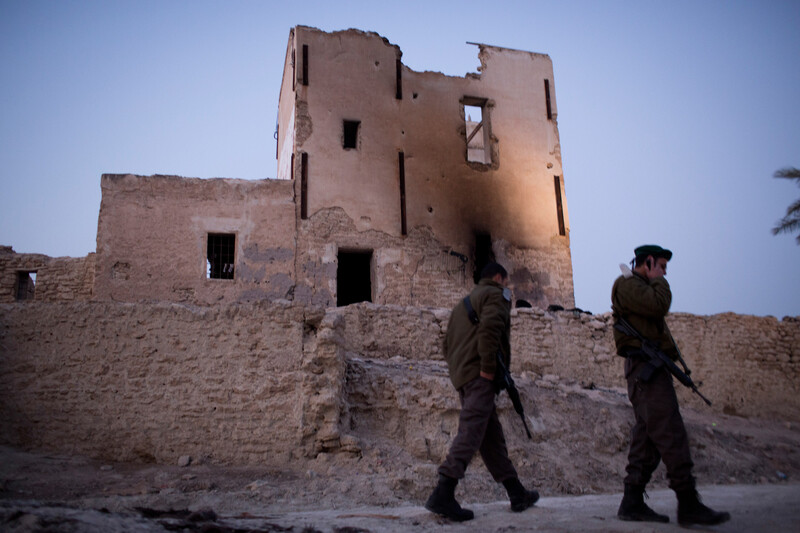
Israeli border policemen patrol in the Ein Hijleh protest village, after the Israeli army and police evicted the village, 7 February 2014.
